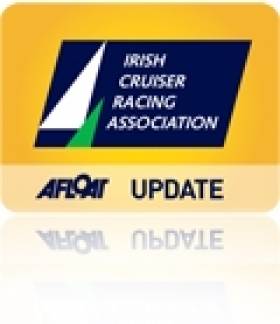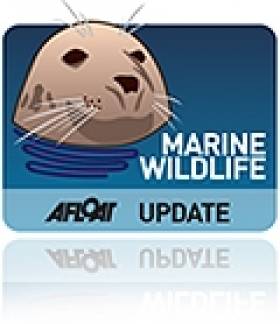Displaying items by tag: Conference
Poll Shows Raging Bull as Favourite for ICRA's Boat of the Year
With just 24 hours to go to the announcement of sailing's boat of the year award at tomorrow's Cork harbour ICRA conference the consistent poll topper from Afloat's online survey shows ISORA offshore champion Raging Bull as a clear favourite with 1175 votes. Second is Marinerscove on 873 and Errislannan third on 256 votes. Polling began just over a month ago and 2,600 votes have been cast. See the poll on the left hand column of the home page. There's still time to cast your vote to try and influence ICRA judges!
European Shark Experts Gather in Galway
International experts on sharks, skates and rays will meet at the Marine Institute in Galway for the 14th Annual European Elasmobranch* Association Conference from 10th-13th November 2010.
The waters around Ireland are home to a rich diversity of sharks, skates and rays, with over forty different species regularly recorded. Since 1997 the Irish Elasmobranch Group (IEG) has been promoting the research, conservation and awareness of these animals in Irish waters.
"Ireland is not alone in having a specific body dedicated to the promotion of shark research with many other European countries having similar groups," said conference organiser Dr. Edward Farrell who has spent the last four years studying Smooth Hound Sharks under the supervision of Dr. Stefano Mariani of the University College, Dublin and Dr. Maurice Clarke of the Marine Institute. The European Elasmobranch Association (EEA) is a share-holding organisation for coordinating the activities of all the national shark organisations dedicated to the study, management or conservation of sharks, skates and rays within Europe.
"Irish shark research will feature strongly at the conference," said Dr. Clarke, "with presentations on the satellite tagging of porbeagle sharks and a global population study of blue sharks among the highlights."
The conference this year will cover a wide variety of topics including elasmobranch taxonomy, biology, management and conservation, fisheries and ecology. It will also be preceded by a meeting of the Shark Specialist Group of the International Union for the Conservation of Nature (IUCN) on Tuesday 9th November in Galway. This group promotes the long term conservation of the world's sharks and related species. Their task will be to assess the status of a number of threatened and endangered Northeast Atlantic species. For more information see http://www.iucnssg.org.
"The annual EEA conference provides a unique opportunity for a diverse range of member organisations to exchange ideas and research, and forge links to promote shark, skate and ray conservation throughout Europe and the rest of the world," said IEG outreach officer Emmet Jackson of BIM. "Galway Atlantaquaria is hosting the welcome reception and delegates are sure to enjoy the elasmobranch exhibits, particularly the impressive ray pool and the world's only captive white skate."
Further details of this conference, a first for Ireland, are available on the Irish Elasmobranch Group website and the EEA website at:
http://www.irishelasmobranchgroup.org/ and http://www.eulasmo.org/
* "Elasmobranch" is a collective name for sharks, skates and rays.






























































